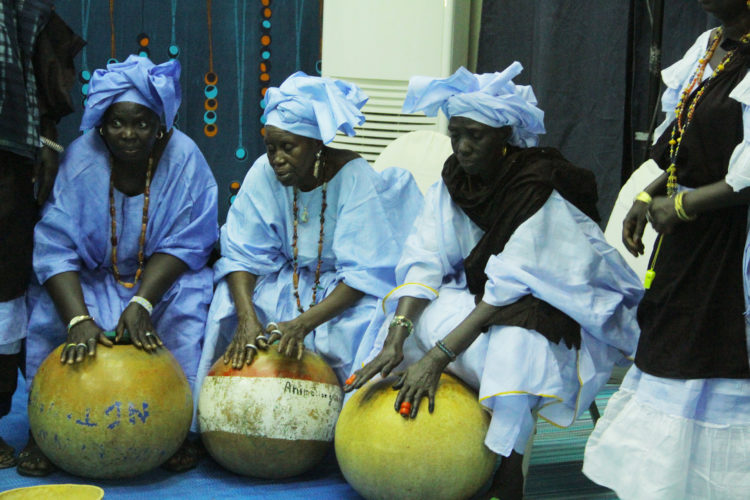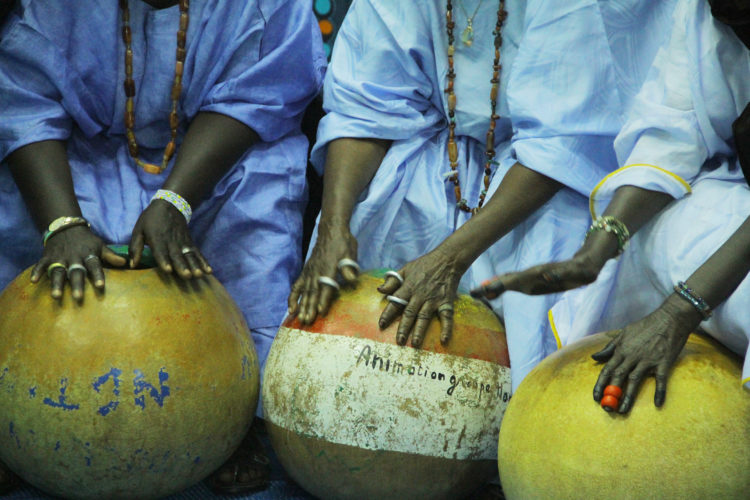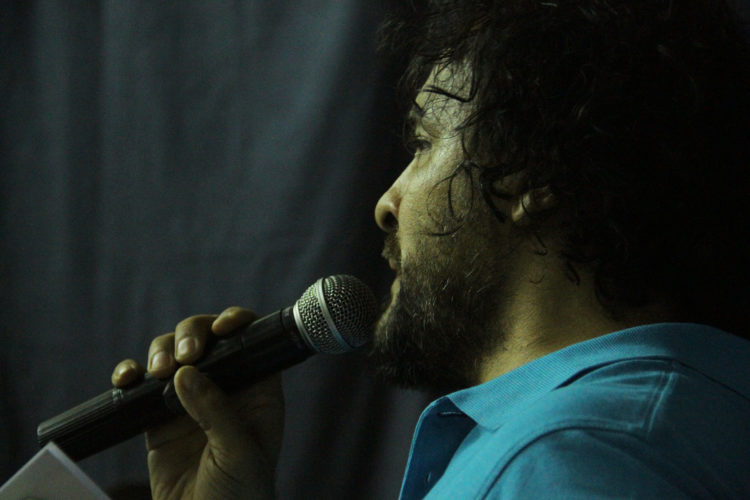Growing up between Algeria and the outskirts of Paris, Kader Attia’s life has always been a measure of two cultures. Might this be why his artistic practice often confronts cultural conflicts head on?
For his current solo show at Northwestern University’s Mary & Leigh Block Museum of Art in Illinois, USA, Attia has created a film, a sculptural piece and installation. He has delved into the university’s Herskovits Library of African Studies, one of the most extensive collections covering the continent that exists today.
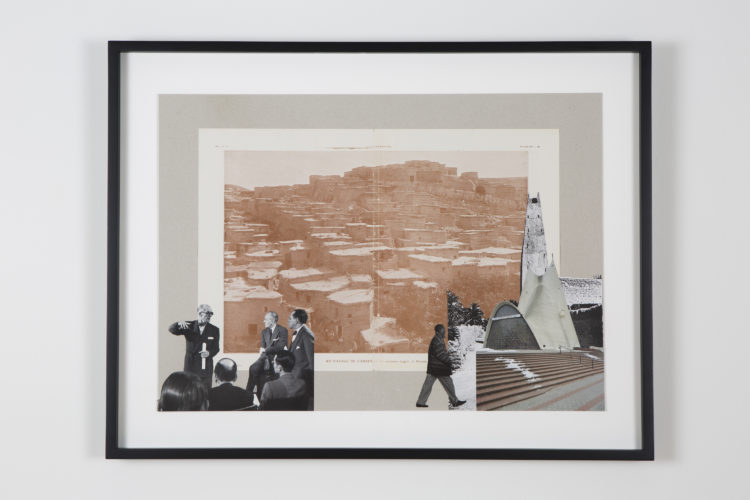
The exhibition interrogates Attia’s long-standing concern with trauma and repair, both of the body and of society, and examines the legacies of colonialism, slavery, and xenophobia.
For one of Attia’s most memorable shows The Repair from Occident to Extra-Occidental Cultures, the artist displayed on industrial metal shelves an array of masks and traditional sculptures channelling the artistic styles of both Senegal and Italy among other varied artefacts produced by soldiers of World War 1.
As soon as we got independence, we got dependence on some things.
All of the sculptures embodied signs of disfigurement, damage and repair as codes to represent the captured, fetishised and traumatised minds (and bodies) that fell victim of the colonial encounter.
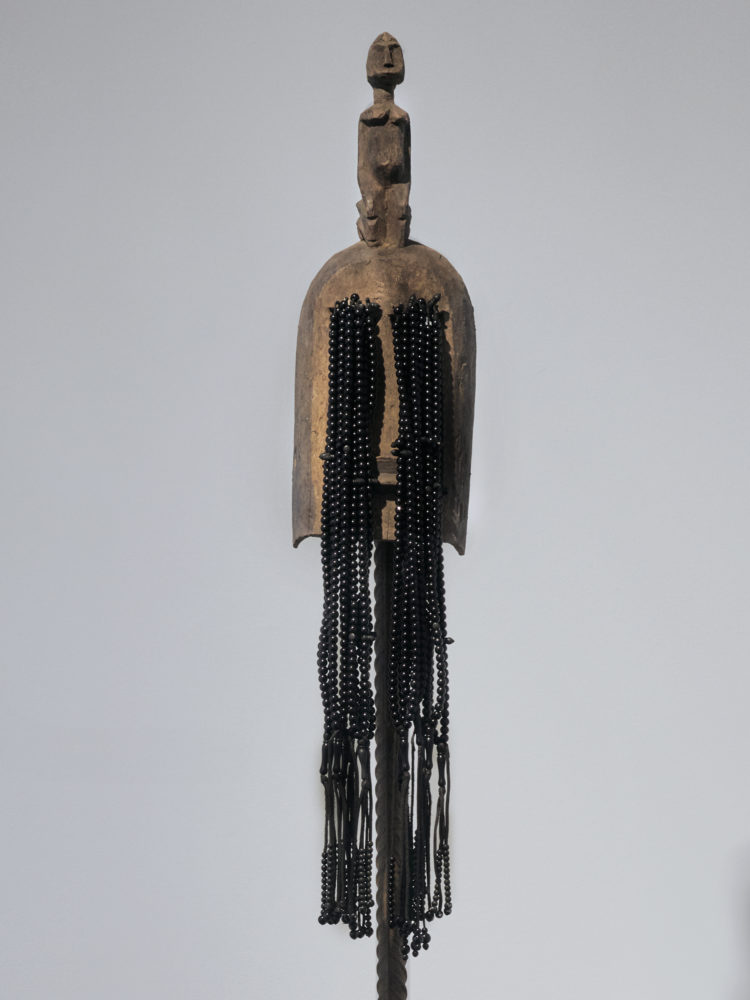
Attia believes that ‘from culture to nature, from gender to architecture, from science to philosophy, any system of life is an infinite process of repair.’ His work uncovers the after-effects of the colonialism: ‘As soon as we got independence, we got dependence on some things.’
Kader’s craft gives voice to local knowledge spoken by local voices.
Attia regularly visits and works within Africa; the continent is the source of his inspiration and he has been collaborating with social scientists, practitioners and thinkers from the continent for some time now. Kader’s craft gives voice to local knowledge spoken by local voices; he unveils the charms of non-western ways of seeing.
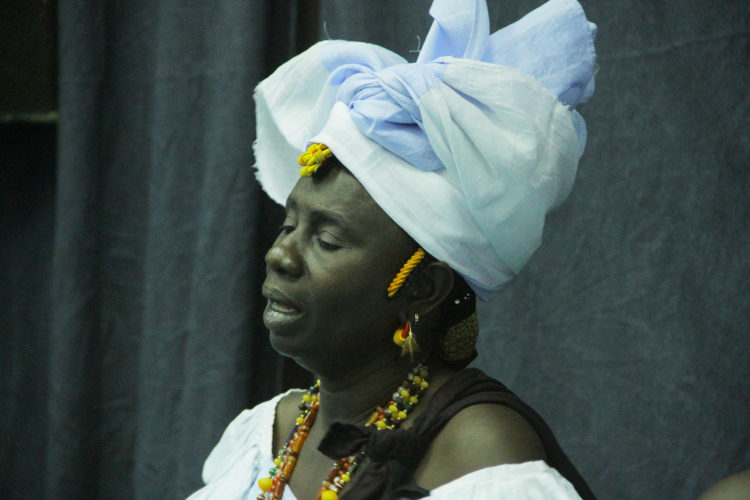
The artist’s first solo show of his career was in the Republic of Congo in 1996, since then his work has drawn high-profile traction having presented works at the 50th Venice Biennale, dOCUMENTA13, the 5th Marrakech Biennial, and Dak’Art.
In 2016 he was awarded the Marcel Duchamp Prize, France’s most prestigious arts award and also exhibited at Centre Georges Pompidou in Paris earlier this year. Despite being a worldly artist Attia remains a man in touch with his roots: ‘The most important work I am doing is the work that I am doing here in Africa.’
Africa’s diversity and cultural wealth are being commemorated at this year’s Art Paris Art Fair which opens this week. The continent is being championed as the ‘guest of honour’. The title accentuates Africa’s artistic flair through the rising artists and galleries that are exhibiting from South Africa, Angola, Cameroon, Tunisia, Nigeria, Morocco, Ivory Coast and beyond.
Kader Attia’s commitment to the continent will be felt through the celebratory events and talks he is hosting at La Colonie, his arts centre and venue in the east of Paris.
https://www.instagram.com/p/BR6RyV-lzF_/?taken-by=la_colonie
Having recently led an artistic workshop in January in Dakar to unveil the first of four off-site projects for Sharjah Biennial’s 13th edition, the artist turned activist. He upheld the arts’ ability to tussle with controversial political matters.
The workshop, ‘Vive L’Indépendance de L’Eau’ [Long Live the Independence of Water] felt like a return to the words of the heroic Nigerian musician and activist Fela Kuti who sang that water is the giver of life; with water ‘you get no enemy’.
Attia and a band of like-minded creatives took a stand against the incarceration of water; he set about probing why we live in an age where water, a vital source of life, is flogged for market value.
Accompanying artists, ecologists, academics and thinkers from the continent and beyond explored water in all its state. The workshop was held at the renowned Cheikh Anta Diop University. Artist films, lectures, debates and cosmic rituals faced the theme of water – water was unbound and set free to flow…
His energy is infectious. ‘Mankind has an obsession with the control of water, but you cannot control nature.’ Quoting an old Senegalese proverb, Attia says ‘Water always finds its way back home.’ His spirit reminded me of the revolutionary philosopher and psychiatrist Franz Fanon who wrote: ‘We revolt simply because, for a variety of reasons, we can no longer breathe.’
For Attia, ‘Long Live the Independence of Water recalls a statement from the 1960s in Africa when states fought to gain independence from the colonial powers,’ he explains.
‘I wanted to re-enact the words of dominated people. Neoliberalisation of mineral water in Africa has become a normality when there are people who have no access to clean water. African governments have to provide clean water to their people and private companies should not affect the quality of public water, it’s happening even in the USA, holdings like Nestlé are imposing laws locally to affect the quality of public water so that mineral water in the stores are more superior.’
Aside from the privatisation of water, rising sea levels are a reality in coastal zones in Africa – off Senegal, Ghana, Togo and other countries
Attia’s workshop also delved into the philosophies of West African water divinities to explore how we can live in harmony with water. For the artist ‘the unpredictability of water makes it fascinating.’ Attia quotes the philosophising martial artist Bruce Lee, whose words feature in the artist Hito Steryl’s film: we should ‘be like water, be formless, shapeless like water, if you put water in the cup it becomes the cup, water can flow or it can crash.’
Kader Attia: Reflecting Memory will run until 16th April 2017 at Mary & Leigh Block Museum of Art & The Sharjah biennial exhibition will run until 12 June 2017.

